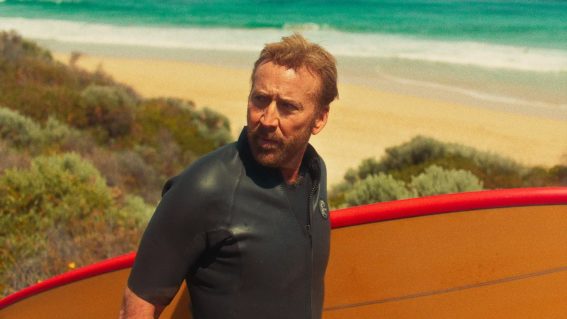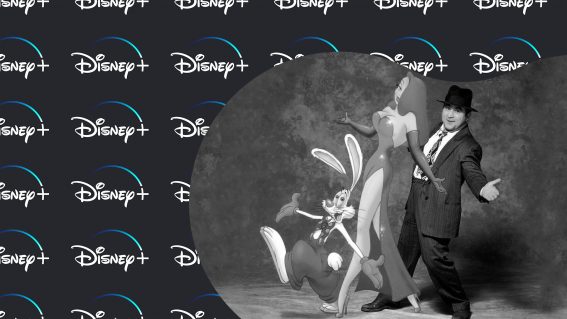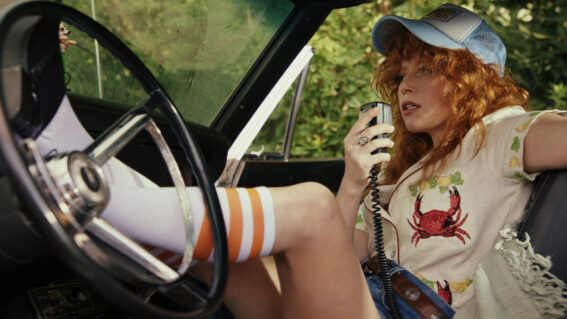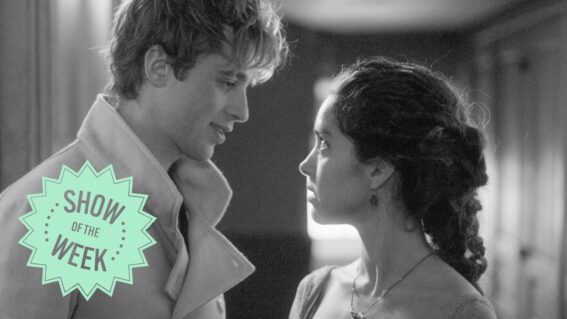Shelf Life #14
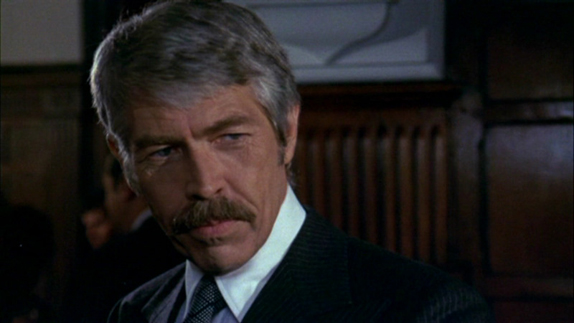
Aaron Yap serves up another trio of under-recognised films in this, the fourteenth edition of Shelf Life. This latest post features a typically intriguing trio of films in which a snowbound whip-wielding heroine from the Shaw Brothers rubs shoulders with a 1970s thriller starring James Coburn and a tale (set in futuristic 1994) that pits Vietnam vets against the violent guardians of Atlantis…
THE SHADOW WHIP
The only thing sadder than Mike Vraney’s death earlier this month was Run Run Shaw‘s so soon after. This guy was simply a GIANT of the martial arts genre, with countless amazing films to his name. Naturally I pulled a few long-unseen Shaw Bros DVDs off the shelf to watch, and it didn’t take long, as I found out settling into The Shadow Whip (1971), to be reminded why I love these films so much.

Whip may not find its place among the top-tier Shaws, but its gorgeous sets, pulpy, absorbing story and healthy serving of martial arts action make it solid, entertaining work all-round for a stable of the studio’s regulars: stars Cheng Pei Pei and Yueh Hua, both from King Hu’s 1966 wuxia classic Come Drink with Me, pairing up for the last time after five films; screenwriter Ni Kuang, who wrote seminal Shaw favourites like Five Deadly Venoms and The 36th Chamber of Shaolin; and super-prolific director Lo Wei, who would soon give Bruce Lee his breakthrough roles in The Big Boss and Fist of Fury.
The film’s unusual snowy setting has always been of interest: there’s more exterior location shooting than normal for the Shaws, giving the production a bit more of an expansive, western-y scope and feel (it’s hard not to think of the blizzard-covered vistas of The Great Silence and McCabe and Mrs Miller). The use of the whip as a weapon is a weird one too — the film even has a character state that it’s one of the rarer martial arts — but it adds some worthwhile novelty to the otherwise standard sword-based wuxia template of the time.
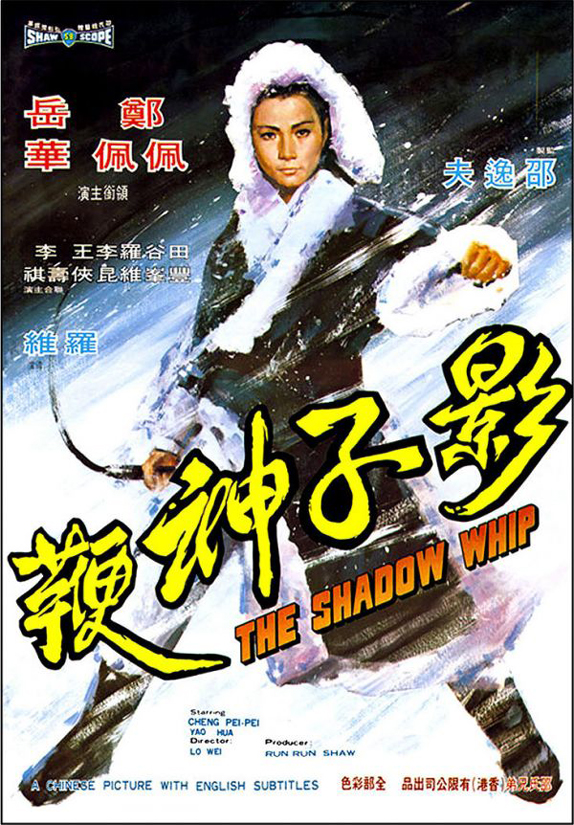
Cheng, spunky and charming as always, plays Yun, the bullwhip-crackin’ owner of a guest house who discovers that her reclusive master/uncle Fang Chengtian (Feng Tien) might be a notorious jewel thief and is wanted by payback-seeking swordsmen.
Lo isn’t a knockout action director by any means — he’s no Lau Kar Leung, for instance — but is adept at moving the narrative along at a lively pace. The scant 76 minute running time doesn’t allow much for much character development but the numerous, pleasingly varied fight scenes work well to distract us. It helps that Cheng looks the part in her furry eskimo-like outfit, busting out the whip against dozens of sword-and-spear-wielding assailants like a true boss. There’s a noticeable amount of “editorial cheating” going on, but not fatally so, and there are enough wide shots of Cheng doing her thing so as to be convincing. Shaw fans will find much to enjoy here.
THE INTERNECINE PROJECT

Shelf Life catnip alert: a cool-as-shit, forgotten ‘70s thriller starring James Coburn! Based on a story by Mort Elkind (who’s apparently ex-CIA), The Internecine Project (1974) features Coburn in top form, cranking up the smooth to 10 as the devious, debonair Robert Elliot, a former secret agent who learns that he’s next in line to become the US president’s advisor. To eliminate any connections to his shifty past, Elliot hatches an intricate plan to kill all four spies in his European network — masseur Harry Andrews, high class call-girl Christiane Krüger, scientist Michael Jayston, civil servant Ian Hendry — in the span of one night. The hook? They’re going to be ones killing each other, without knowing it.
Okay so the idea, painstakingly plotted by Brit-com veteran and future My Cousin Vinny director Jonathan Lynn, is somewhat implausible, working on the assumption that everything will be in the right place and right time for anything to work. But for puzzle-minded thriller buffs, there’s an undeniable pleasure and satisfaction in watching these plot pieces snap into place with chilly precision, and the low-tech-iness of the operation is refreshing: Coburn spends half the movie cooped up in his study, ticking off a scheduled list of tasks that his agents have to execute, while the murders themselves — including a rather nasty strangulation Hitchcock would approve of — would not be out of place in an Agatha Christie whodunit. Ken Hughes’ direction is fairly vanilla most of the way, but the actors are good, and the film is buoyed by a killer Roy Budd score and the dusky, moodily captivating cinematography of the great Geoffrey Unsworth (2001: A Space Odyssey). Lee Grant is kinda wasted as Coburn’s perfunctory love complication.
THE RAIDERS OF ATLANTIS
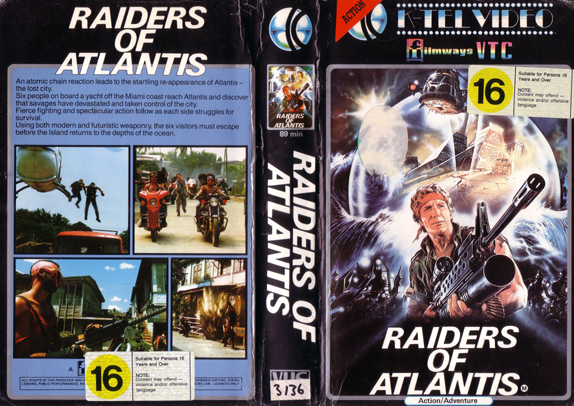
After making two of his most notorious films in 1980, Cannibal Holocaust and House at the Edge of the Park, Ruggero Deodato eased off on the rape and animal cruelty and gave us one of his cheesiest, most ridiculous — and by that token, greatest films: The Raiders of Atlantis (1983).
Fundamentally another laughably cheap Mad Max rip-off the Italians were so fond of churning out in the ‘80s, this one’s set in the futuristic period of 1994 in Miami, Florida. A team of scientists on an oil rig are trying to raise a radioactive nuclear sub from the ocean floor, but in doing so, have inadvertently caused the return of the entire civilisation of Atlantis! The guardians of Atlantis — bandana-clad, face-painted biker punks known as “Interceptors” — are now hellbent on destroying humanity, and only a pair of grizzled, gung-ho Vietnam vets (Christopher Connelly, Tony King), and sexy “pre-Colombian dialect” expert Dr. Cathy Rollins (Gioia Scola) can stop them.
As you can probably tell from this dopey plot, the movie’s link to reality as we know it is tenuous at best, so it’s easier to just go with the flow and enjoy its glorious trashy goodness. The action — a good portion of which was shot in Manila — is practically non-stop; barely a minute goes by without someone lobbing a Molotov cocktail or firing an arrow/machine gun/rifle. There’s also an attempt at the ol’ wire-across-the-road trick we recently saw more elegantly staged in The Counselor. The dumb-ass dialogue had me grinning from ear to ear (“Don’t look like no advanced civilization to me – just a bunch of trees!”), and Deodato’s use of miniatures, mannequins and stunt-recycling (same stunt, different angle) all add to the movie’s budget-deprived goofiness. And if there’s any doubt you’ll be in for a good time when you pop in the tape, this totally sick disco tune plays over the opening credits:

